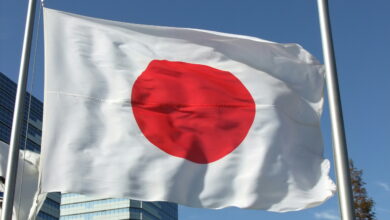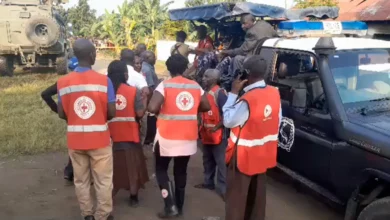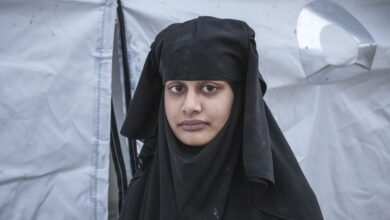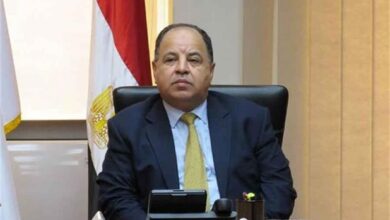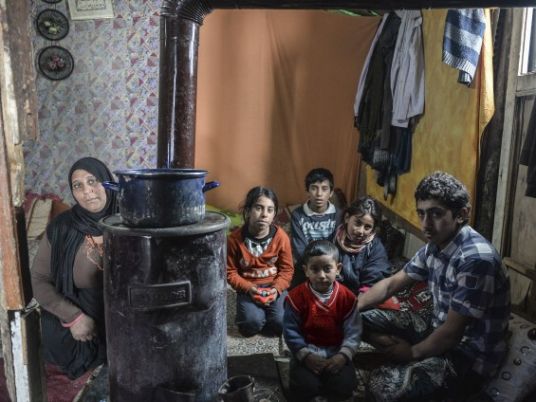
Iraq's prime minister responded to protests this summer over failing public services by launching a campaign against corruption and mismanagement, yet more than four months later there is little sign of improvement in one key sector: healthcare.
With Iraqis fleeing Islamic State in ever greater numbers, the country's growing population of internal refugees is straining public facilities already ground down by decades of war, sanctions and red tape.
Focused on fighting insurgents, the government is struggling to provide the services that Iraqis took to the streets to demand.
That failure is nowhere more acute than in a healthcare system once seen as one of the best in the Middle East.
The World Health Organization says Iraq's public health, water, and sanitation systems are collapsing.
The situation has become so desperate that thousands of Iraqis forced to flee Anbar province in the west have opted to bypass the government and seek medical care from non-governmental organizations such as one called Dari.
Based in a modest apartment building in Baghdad's Karrada Mariam neighborhood, Dari treats about 50 patients a day, mostly children and the elderly.
So far this year, Dari has provided more than 15,000 families with food aid and registered another 8,400 patients at its free medical clinic, said its president, Alaa Abdel Sadaa.
Abdel Sadaa said his organization managed resources better than the government, which is plagued by political infighting.
Prime minister Haider al-Abadi must meanwhile deal with resistance from Iraq's fractious members of parliament, which means that as the healthcare crisis deepens, he has to build a political consensus before he can proceed with any reforms.
For its part, Dari relies on volunteers. None of its more than 100 medical professionals are paid, said Abdel Sadaa.
"We can treat 100 patients with US$1,000," he said. "That is difficult for the health ministry or any government hospital to say."
Dari relies partly on donations and supplies from pharmaceutical firms and food manufacturers.
Abdel Sadaa said the government has called on non-governmental organizations to help it fill the gap in public services caused by the state's new austerity measures.
But he said instead of helping groups like his operate, government agencies often obstruct his work.
Instead of supervising organizations to prevent corruption and theft, the state uses the security situation to restrict the groups' activities, he said.
The chief of the NGO directorate in the Iraqi cabinet, Ali Makki, said his office is intensifying efforts to facilitate the work of non-governmental organizations, especially those providing relief and health services.
Dari was founded in 2013 to encourage blood donations after bomb attacks in the capital. It now runs a mobile clinic in one of Iraq's provinces every week or so, and has played a big role in fighting the worst cholera outbreak in Iraq in years.
Decades of suffering
Health ministry spokesman Rifaq al-Araji said non-governmental organizations had helped to ease the pressure.
Araji blamed economic sanctions imposed by the United Nations in 1990 after Iraq invaded Kuwait, and subsequent wars and violence, for the poor state of the health care system.
The war with Islamic State has displaced more than 3 million Iraqis. With most belonging to the minority Sunni sect, the problem is also a political one which Iraq is poorly placed to handle following years of sectarian bloodletting between Sunnis and Shi'ite Muslims.
With lower revenues from oil exports and higher costs associated with the battle against Islamic State, the government is failing to help the most vulnerable.
"We came from the province of Anbar as a displaced family because of the fighting there. We came here as our financial position is weak. I have no job," said Khalil Ibrahim, 60, whose family has 10 members.
Anger over shortages of electricity, water and jobs erupted into protests this summer in Baghdad and many southern cities, prompting Abadi to declare war on corruption. At the same time, falling oil prices forced the government to slash spending.
State hospitals are grim.
"I came to a government hospital because I can't pay the high cost of private doctors. But the problem is I still have to get medication from a private pharmacy as it is usually not available here," said Ameera Abdel Muhsin, 50, a housewife, at a state hospital.
Al-Yarmouk hospital in western Baghdad is typical. Patients are transported through corridors littered with cigarette butts.
"I was admitted to hospital two days ago suffering with kidney failure but I'm getting worse because of a lack of treatment," said Qasim al-Kinani, 68, pointing to a cat eating leftover food beneath his bed.
"Look at this farce. I'm sleeping on a bloodstained mattress with a filthy smell. I feel like I'm sleeping in a zoo."

